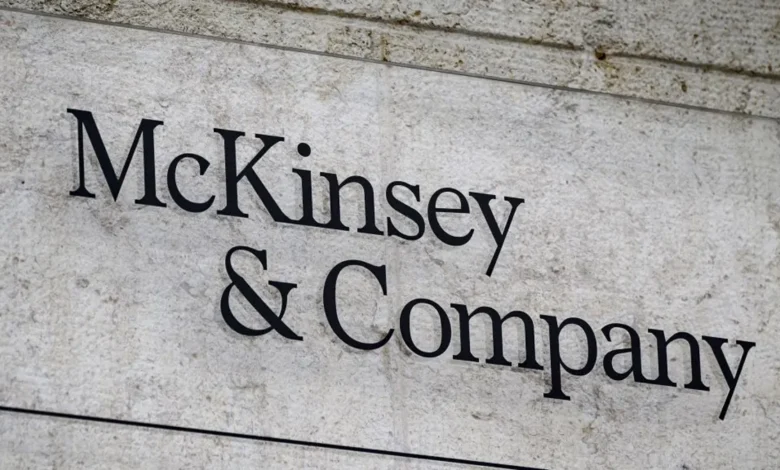Whistleblower claims unlawful firing from McKinsey
According to the complaint in Niazi's lawsuit, he responded with a lengthy rebuttal of several thousand words, the majority of which was "dedicated to disproving the bogus allegations of poor performance, and the other half dedicated to exposing the errors in the alternate deck that had been prepared for the meeting."

In a case filed Monday, a former IT director at McKinsey & Co. said the firm unlawfully fired him after he raised concerns about purported disaster recovery vulnerabilities within the company.
Kamran Niazi claims in the lawsuit, which was filed in Massachusetts on May 22 and obtained by a news source, that he was placed on a performance improvement plan (PiP) after he worked on a presentation that was unfavorably critical of the difficulties the company would have with data restoration. He also claims in the complaint that the company might have had trouble withstanding “a malware attack or natural disruption event.”
According to Niazi’s version of events, as is described in the lawsuit, the IT Disruption Resilience (DR) program, which had previously been overseen by three separate workers, was his “primary focus” when he joined the company in February 2021. Later, he worked with the group attempting to get FedRAMP certification for its Wave product, a program management tool that, according to Niazi, the business had been marketing to corporate clients for over a decade “to start generating revenue with governmental agencies.”
A corporation requires the FedRAMP (Federal Risk and Authorization Management Program) cert to comply with Uncle Sam’s cloud services risk standards, as readers who sell software platforms to US government agencies are aware.
According to the IT director, the team then put into action a “tactical initiative named ‘Cyber Step-up’ to resolve gaps and issues to help improve the firm’s preparedness in an effort to protect and respond to a ransomware attack.”
McKinsey’s “most critical IT client-facing products”
The lawsuit continues by asserting that Niazi created a survey to be conducted in June 2022 to evaluate the state of DR for roughly 50 of McKinsey’s “most critical IT client-facing products” in light of the “lack of data and information available about the state of recovery capabilities of the Client Capability products.” According to the complaint, almost 60% of respondents gave their opinions, “solidifying” an earlier conclusion that “DR capabilities were virtually non-existent in the Client Capabilities technology landscape.”
In addition to charges that colleagues requested him to sign off on a “inaccurate” slide deck, which he claims he refused to do, the complaint describes what the IT director believes was a campaign to modify the data provided. He claims that after that, he was informed that he would not be able to attend the meeting “even though he was director of DR.”
The lawsuit states that on August 5, “Mr. Niazi was informed that his performance was unsatisfactory and that he would be placed on a PiP, the same day that Mr. Niazi’s coworkers were presenting the knowingly inaccurate deck.”
According to the complaint in Niazi’s lawsuit, he responded with a lengthy rebuttal of several thousand words, the majority of which was “dedicated to disproving the bogus allegations of poor performance, and the other half dedicated to exposing the errors in the alternate deck that had been prepared for the meeting.”
The suit also details a test conducted in December, with the complaint alleging Niazi “helped the product team create a simulation and parameters of a recovery test to meet the FedRAMP testing requirements.”
The complaint states: The test itself was conducted in December and the product team failed to restore and recover the components of the product which were part of the test. This further validated the survey results and Mr Niazi’s concerns that the Company’s Client facing products were indeed not capable of recovery.
Niazi was informed in November that he was being put on a performance improvement plan based on the same information he had received in August, but he refused to sign it, according to the lawsuit.
Further allegations in the lawsuit include that on December 12, 2022, a senior HR official gave Niazi “an ultimatum: accept the PiP or get terminated with a one-month severance package offer.” In response, Niazi allegedly claimed that he had been “set up” and asserted that the business was “trying to cover up fraud.” Then, according to him, he gave “ample documentation to substantiate his position.” According to the lawsuit, the HR employee “pivoted” “three days later, on December 15” and “by claiming that the Company was looking to separate with Mr. Niazi not for performance related issues, but due to communication gaps/issues, which, obviously, cannot be quantified.”
The lawsuit states that the IT director then brought up the fact that his year-end review made no mention of having poor interpersonal or communication skills, which allegedly led HR to “go silent.”
The technician alleges that in January 2023, the next month, he was dismissed. In addition to attorney’s fees and costs, McKinsey is being sued for damages. We’ve been in touch with Niazi’s attorney for a response and to clarify a dollar amount for the damages the IT executive is requesting.
Source: The Nation, The Register
Please, also have a look into : McKinsey Report: India to have one of the largest working-age populations by 2030



